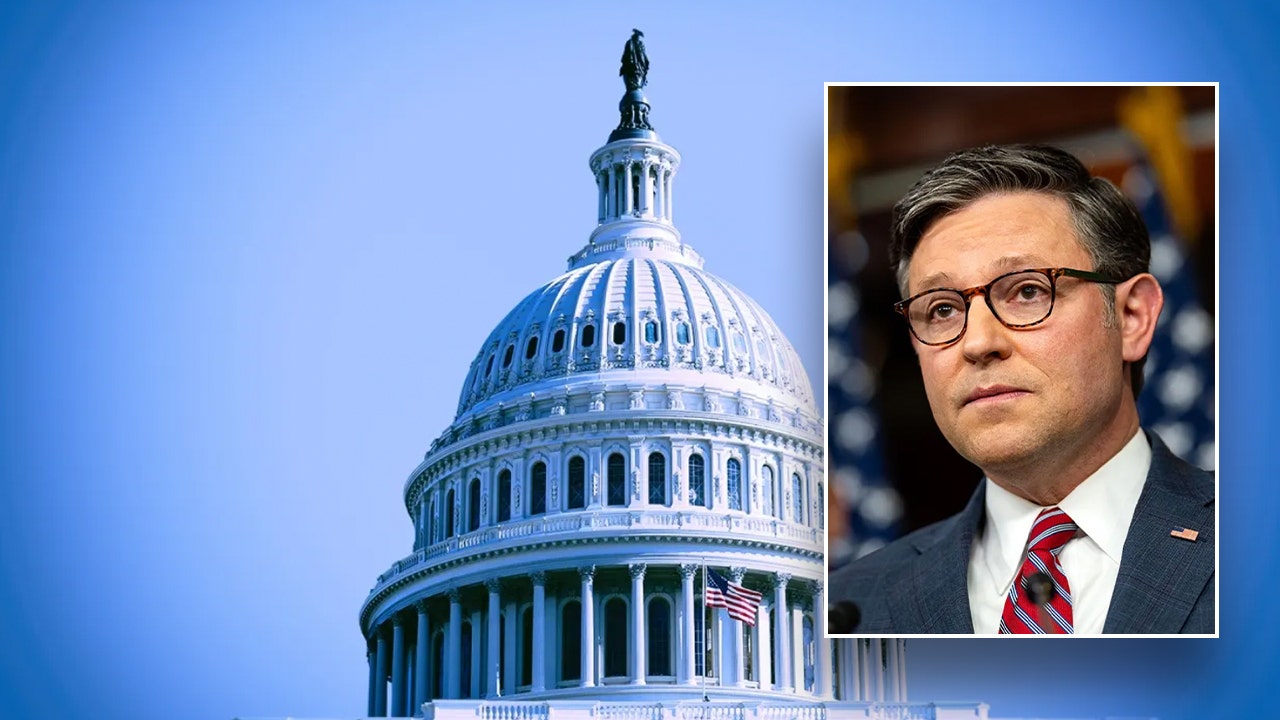Louisiana
Gubernatorial candidate Waguespack unveils four-part plan to fix Louisiana

Republican gubernatorial candidate Stephen Waguespack wants to leverage his experience in the private sector to bring free market solutions to Louisiana’s pressing issues, and he released details on Monday outlining his approach.
Waguespack, former chief of staff to former Gov. Bobby Jindal, believes his lack of political credentials is an asset over others in the race to replace term-limited Gov. John Bel Edwards, providing him a unique opportunity to offer solutions that marry government with business and community organizations to tackle problems that have plagued Louisiana for years.
“I’m coming in with an outside perspective,” Waguespack told The Center Square. “I spent most of my career fighting for free market and free enterprise.”
Waguespack’s four-part policy plan released Monday starts with cutting taxes, reducing regulations and simplifying compliance to streamline the process for entrepreneurs to turn their ideas into reality.
ALL EYES ON RON: PRESSURE MOUNTS ON DESANTIS AHEAD OF FIRST GOP DEBATE
“That will help our tax base, it will grow our economy, and it will create better paying jobs for everyone in Louisiana,” according to “The Wags Plan.”
Waguespack, the former CEO of the Louisiana Association of Business and Industry, believes cutting the red tape will help to draw more businesses, workers and families to the Pelican State, and reverse the tide of young professionals moving elsewhere.
Attracting more people to Louisiana will also require rethinking the state’s approach to education, with The Wags Plan leaning on Waguespack’s experience helping to rebuild New Orleans’ public school system following hurricanes Rita and Katrina in 2005.
Waguespack told The Center Square Louisiana’s current school funding and accountability system that drives students toward four-year degrees that are expensive and often don’t translate into quality employment.
“It’s not what the economy is demanding,” he said. “We have to find a way to instill some hope and pathways for all our families.”
With experience serving on the state school board and multiple local charter school boards, Waguespack plans to bring together a commission of education and business officials with leaders at local colleges, regional training programs, and nonprofit groups to find ways to incentivize schools to “move the needle on outcomes.”
That would involve increasing support for two-year and technical training colleges and aligning programs, and four-year institutions, with industries in Louisiana to equip students with skills employers need. It also involves empowering parents with school choice, utilizing options from education savings accounts with state funds parents can use to put their children in schools that fit their needs, as well as expanding charter school options.
“Parents feel like they’re losing control. We have to give them more authority to put their kids in a quality school,” Waguespack said. “Low-income families right now get stuck, and I don’t think that’s right.”
While Waguespack acknowledged it may be necessary to start by targeting specific student populations for education savings accounts, “I’d want it to be as robust as possible,” he said.
“The long-term goal needs to be freedom for everybody,” Waguespack said. “I think that’s the trend sweeping the country and I think Louisiana needs to get on track or we’ll get left behind.”
Waguespack’s other major policy focus centers on finding solutions to the state’s insurance crisis, for both property and auto.
Skyrocketing rates for both “puts families in an unaffordable death spiral,” Waguespack said. “It’s a huge issue in our state right now.”
Waguespack plans to increase resources for the state’s recently adopted roof fortification program, expand the incentive program to attract more insurers to the state, and pursue “sensible legal reforms to lower the cost of these insurance premiums,” he said.
“We have got to bring the insurers and lawyers in the room and put it all on the table, and I’m going to mediate,” Waguespack said.
CLICK HERE TO READ MORE FROM THE WASHINGTON EXAMINER
If elected, Waguespack said he’d call a special session early next year to implement the reforms, from changes to the legal system, to dedicating surplus dollars to the roof fortification program, to tax and insurance credits for homeowners who invest in protecting their homes against storms.
With car insurance, Waguespack believes increased penalties for driving without insurance would force more residents into the market and lower costs, and he’d offset the expense by eliminating required vehicle inspections.
The inspections, he said, “are a cheap way for the state to find a way to tax you.”
“I’ll try to lower costs elsewhere where I can,” Waguespack said.

Louisiana
U.S. Department of Justice sues Louisiana over prisoners being held past release dates

The U.S. Department of Justice filed a lawsuit Friday alleging that Louisiana and its correctional department continue to keep prisoners detained far past their sentences.
The lawsuit is aimed at both the state and the Louisiana Department of Public Safety and Corrections for confining incarcerated people for “weeks and months” after their legitimate release dates.
“Every person in the United States, whether incarcerated or otherwise, enjoys certain fundamental rights,” said Kristen Clark, assistant attorney general of the DOJ’s Civil Right’s Division. “Foremost among them is the right to individual liberty. The Founders were keenly aware of the potential abuse of power when government can arbitrarily take away a person’s freedom without a lawful court order specifying the period of their confinement.”
State department of corrections officials could not immediately be reached for comment.
Ongoing problem alleged
In a release, the Department of Justice said its lawsuit comes after a multiyear investigation into allegations of “systemic overdetention” in LDOC’s system.
In a report from January 2023, DOJ made Louisiana aware of the alleged conditions, providing written notice of the supporting facts and what the minimum necessary measures would be to remediate them.
The report was required under the Civil Rights of Institutionalized Persons Act, which also authorizes the DOJ to act when it believes an institution is depriving detainees of their constitutional rights.
“In this context, the right to individual liberty includes the right to be released from incarceration on time after the term set by the court has ended,” Clark said in the DOJ statement.
The lawsuit reportedly does not seek monetary damages, but instead “injunctive relief” to the ongoing conditions in LDOC’s institutions, outlined in the DOJ’s investigation.
The release says Louisiana has made “marginal” efforts to address the problem of overdetention, but the DOJ does not find them adequate, since the problem has allegedly been well-known to Louisiana for a long time.
“To incarcerate people indefinitely, as LDOC does here, not only intrudes on individual liberty, but also erodes public confidence in the fair and just application of our laws. The Justice Department looks forward to proving its case in court,” Clark said in the statement.
A report from the Louisiana Legislative Auditor earlier this year found that the Department of Public Safety and Corrections did not have an adequate review process to ensure changes to release dates are accurately calculated. An agency official said it was the fourth time the auditor’s office had made such a finding.
The corrections department disputed the findings at that time, asserting in a response that its review process was adequate and noting the auditor did not find any errors in the release date calculations it reviewed.
Louisiana
In Louisiana’s River Parishes, one museum is helping residents’ piece together their histories

The land in Louisiana’s River Parishes is populated with lost families.
Unmarked graves of formerly enslaved people — sometimes totaling more than 1,000 in a single area — have been found in tree clusters in the middle of empty fields.
In 2018, Shell Convent memorialized the Bruslie Plantation and Monroe Plantation cemeteries, which had been found on its property. BASF completed a similar project in 2022, preserving a Native American burial site and cemetery of around two-thirds of the 300 enslaved people who lived and worked at what was once the Linwood Plantation.
And in October, research conducted by an environmental advocacy group identified five formerly enslaved people — Stanley, 31; Simon, 23; Harry, 18; Betsy, 18; and Rachel, 9 — believed to be buried on the site of the proposed Formosa plastics plant in St. James Parish.
Many of the graves are unidentified. And family histories in the region remain incomplete because of the lingering effects of the trans-Atlantic Slave Trade, from the unmarked burials to the recording of people as property — without names — in U.S. Census Bureau records from the era.
But the River Road African American Museum in Donaldsonville is working to help people uncover and repair some of those voids through quarterly genealogy workshops, which educate attendees on databases and ways to search for their history.
Untold stories
One such largely forgotten story is that of Lawrence Minor, who was enslaved as a child at the Linwood Plantation, where the BASF plant in Geismar currently sits.
Regina Bergeron, the museum’s former board director and a BASF employee, led the museum’s most recent workshop in early December. During it, she explained her role in BASF’s preservation of the cemeteries on its property and her research into Minor’s life.
“Learning about this is history … opens doors, and we can have more conversations about it,” she said during the session. “ … I run into a roadblock with the 18th century, and so (for) my peers to understand those challenges that I had as an African American just opens a door and some additional dialogue.”
The Linwood Plantation owner, Phillip Minor, had at least three children with an enslaved woman named Lucy, Bergeron explained. In his will, Phillip Minor left provisions for Lucy and her children to be freed.
Workshop instructor Regina Bergeron laughs as she shares stories about her grandparents when presenting her family tree during the River Road African American Museum genealogy workshop in Donaldsonville on Saturday, December 7, 2024.
“One of those children is Lawrence Minor. Lawrence was the first president of Prairie View A&M, and he was very influential in the Underground Railroad,” she explained.
Prairie View A&M, a historically black college in Texas, is the second-oldest public college in that state and one of its two land-grant universities, according to its website. Bergeron said she discovered Lawrence Minor’s story when Steve Kleinpeter, another member of the BASF project, sent her an old newspaper article he found.
“Steve actually found this article, and he saw that it was a Black man. And he said, ‘Well, this can’t be the same Minors that I’m looking for because this is a Black man,’” she explained. “And then when he read the article again, he said, ‘Maybe this is connected, it says this man came from a plantation in Ascension Parish.’”
He notified Bergeron early in the afternoon, and the two independently found Minor’s will that emancipated Lucy and her children around 3 a.m. the next day. From there, they reconstructed his tree using newspaper articles, and records from his bank and Oberlin College, which he attended.
Workshop in action
But reconstruction is difficult. Census records from 1850 didn’t record any names for enslaved people. Instead, they documented the enslavers’ name, and the age, sex and color of each person owned. Fugitive slave advertisements, which offered rewards for runaways and were posted in papers including The Advocate and Times-Picayune, usually only contained a first name.

Historical documents like this one telling of the sale of people into slavery in the 1800s in Ascension Parish will be entered into databases by volunteers, to help make the search easier for people looking for their family’s history.
“In 1859, if enslaved people were transferred from one plantation to another, they would get the name of the plantation owner from the prior,” Bergeron said during the workshop. “So if they came from the Harris plantation, they might have the name Harris.”
The workshops guide attendees through the building their ancestry trees and locating these disparate sources of information. Dawn Kaigler, of Gonzales, said the December workshop was her second as she was trying to reconstruct her ancestral tree.
“With my father’s family … they had already done theirs,” she said. “But I was looking to find out some information about my mom’s family because we’re still trying to piece together some information on that.”
Kaigler added that the previous workshop she attended included a presentation on the 272 enslaved people who Georgetown University’s Jesuit founders sold to two Louisiana sugar cane planters in 1838. In 2022, the museum opened a permanent exhibit in the Episcopal Church of Ascension in Donaldsonville about the sale. The Jesuit order formally apologized in 2017 to the descendants of the enslaved.

Gay Square talks about her family history while beginning to fill out her family tree during the River Road African American Museum genealogy workshop in Donaldsonville on Saturday, December 7, 2024.
“We got information on that and where some of those families migrated to once those enslaved people were sold off to further areas in Louisiana,” she said. “ … They had a list of the names of the people who were descendants … it was really quite interesting.”
During December’s meeting, Kaigler said she was looking into her grandfather’s history.
“My sister and I had started looking into things for that, and we went to the Ascension Parish Library and … got some information on various databases to try to start finding things,” she said. “And we kind of did find a census document from when my grandfather might have been about 16-years-old or so.”
‘Stories are beginning to be become erased’
The museum, which celebrated its 30th anniversary this year, has another workshop tentatively planned for February, Executive Director L’Oréal Evans said. The museum owns five properties, including one of 400 original Louisiana Rosenwald Schools that were established to educate Black students between 1912 and 1932.

The River Road African American Museum’s restoration of a Louisiana Rosenwald School was recently completed. The Louisiana Rosenwald Schools provided educational opportunities for African-American students between 1912 and 1932. With the help of businesses such as Shell, BASF, and Ascension Parish governmental entities, the Museum was able to fund the $450,000 restoration.
In the school’s bathroom, a quote attributed to Henry Brougham is framed on the wall: “Education makes a people easy to lead, but difficult to drive, easy to govern, but impossible to enslave.”
Evans emphasized that historical education such as the workshops are vital to understanding the region’s history.
“We’re at a very detrimental time right now in America, where stories are beginning to be become erased as we see people taking books off of shelves, burning books, destroying books. Saying that these books are not good for education, for the future of America,” Evans said. “But what we do is we collect and preserve those stories. And so, part of doing so means that we allow people to come in, trace their heritage, find out … what their past is and who their people are. And in doing so, they record their own history.”
Louisiana
I-10 shut down near Texas-Louisiana state line after crash

ORANGE, Texas – A crash near the Texas-Louisiana state line has shut down traffic in both directions on I-10 early Friday morning, officials say.
According to Texas DPS, both eastbound and westbound lanes are blocked and traffic is being diverted.
Get news, weather and so much more on the new FOX LOCAL app.
According to Vidor Emergency Management, at least seven commercial vehicles are involved in the crash, but no injuries have been reported.
I-10 alternate routes
Vidor Emergency Management says lanes will likely be shut down for most of the day.
On the Louisiana side, traffic is being diverted at Mile Marker 4. Drivers can travel north to LA-12 and then west into Texas.
On the Texas side, traffic is being diverted at Mile Marker 877. Traffic is being rerouted to SH 87 and SH 12.
This is a developing story. Check back for updates.
The Source: The information in this article is from the Texas Department of Public Safety, Louisiana State Police, Vidor Emergency Management.
-

 Politics1 week ago
Politics1 week agoCanadian premier threatens to cut off energy imports to US if Trump imposes tariff on country
-
/cdn.vox-cdn.com/uploads/chorus_asset/file/25782636/247422_ChatGPT_anniversary_CVirginia.jpg)
/cdn.vox-cdn.com/uploads/chorus_asset/file/25782636/247422_ChatGPT_anniversary_CVirginia.jpg) Technology1 week ago
Technology1 week agoInside the launch — and future — of ChatGPT
-
/cdn.vox-cdn.com/uploads/chorus_asset/file/25789444/1258459915.jpg)
/cdn.vox-cdn.com/uploads/chorus_asset/file/25789444/1258459915.jpg) Technology1 week ago
Technology1 week agoOpenAI cofounder Ilya Sutskever says the way AI is built is about to change
-

 Politics1 week ago
Politics1 week agoU.S. Supreme Court will decide if oil industry may sue to block California's zero-emissions goal
-
/cdn.vox-cdn.com/uploads/chorus_asset/file/25546252/STK169_Mark_Zuckerburg_CVIRGINIA_D.jpg)
/cdn.vox-cdn.com/uploads/chorus_asset/file/25546252/STK169_Mark_Zuckerburg_CVIRGINIA_D.jpg) Technology1 week ago
Technology1 week agoMeta asks the US government to block OpenAI’s switch to a for-profit
-

 Politics1 week ago
Politics1 week agoConservative group debuts major ad buy in key senators' states as 'soft appeal' for Hegseth, Gabbard, Patel
-

 Business5 days ago
Business5 days agoFreddie Freeman's World Series walk-off grand slam baseball sells at auction for $1.56 million
-
/cdn.vox-cdn.com/uploads/chorus_asset/file/23951353/STK043_VRG_Illo_N_Barclay_3_Meta.jpg)
/cdn.vox-cdn.com/uploads/chorus_asset/file/23951353/STK043_VRG_Illo_N_Barclay_3_Meta.jpg) Technology5 days ago
Technology5 days agoMeta’s Instagram boss: who posted something matters more in the AI age




















